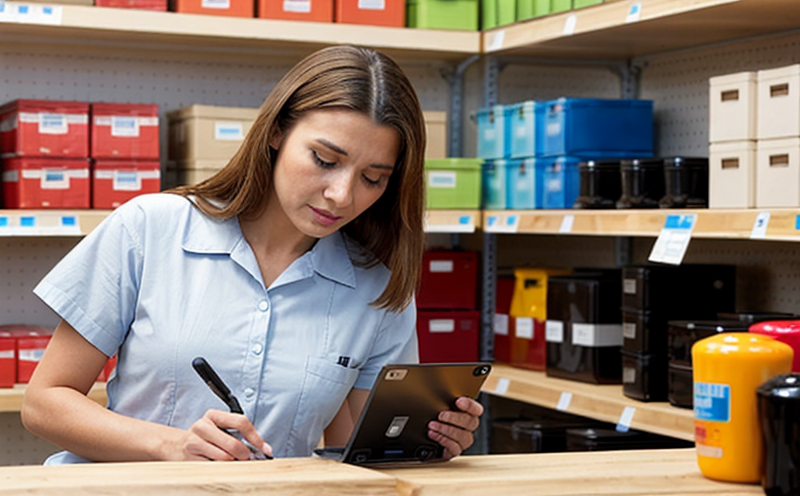Quality Control in Retail Products: Ensuring Customer Satisfaction
In todays competitive retail market, ensuring that products meet quality standards is crucial for success. Quality control (QC) is a process designed to evaluate and improve the quality of retail products, reducing defects, and enhancing customer satisfaction. Effective QC measures can help retailers maintain their reputation, build trust with customers, and ultimately drive sales.
Why is Quality Control Important in Retail Products?
Quality control is essential for several reasons:
Ensures compliance with industry regulations and standards
Prevents product recalls and associated costs
Enhances customer satisfaction and loyalty
Reduces waste and minimizes the environmental impact of production processes
Increases efficiency and productivity by identifying and correcting quality issues early on
Types of Quality Control Measures
There are several types of QC measures that retailers can implement:
Inspection: This involves checking products at various stages of production to identify defects or irregularities.
Testing: Products are subjected to rigorous testing to ensure they meet specific performance and safety standards.
Auditing: Regular audits are conducted to evaluate the effectiveness of QC measures and identify areas for improvement.
Certification: Retailers can obtain certification from third-party organizations, such as ISO 9001, to demonstrate their commitment to quality.
QC Process: A Step-by-Step Guide
The QC process typically involves the following steps:
1.
Planning: Identify the products and processes that require QC attention.
2.
Inspection: Conduct regular inspections of products at various stages of production.
3.
Testing: Subject products to rigorous testing to ensure they meet specific performance and safety standards.
4.
Corrective Action: Address any quality issues identified during inspection or testing.
5.
Review and Evaluation: Regularly review and evaluate the effectiveness of QC measures.
Common Quality Control Issues in Retail Products
Some common QC issues that retailers face include:
Defective products: Products that do not meet performance, safety, or aesthetic standards
Packaging errors: Incorrect labeling, packaging, or documentation
Counterfeit products: Authentic products with fake or altered branding
Product contamination: Presence of foreign substances or allergens in products
Detailed Explanation of Quality Control Measures
Heres a more detailed explanation of some common QC measures:
Inspection: A Critical Component of QC
Inspection involves checking products at various stages of production to identify defects or irregularities. This can include:
Visual inspections: Checking for damage, stains, or other visible defects
Dimensional checks: Verifying that products meet size and weight specifications
Material testing: Evaluating the quality of raw materials used in production
Inspection can be performed manually or using automated systems.
Testing: Ensuring Products Meet Performance Standards
Testing involves subjecting products to rigorous evaluation to ensure they meet specific performance and safety standards. This can include:
Functional testing: Checking that products perform as intended
Safety testing: Evaluating the risk of injury or harm associated with product use
Environmental testing: Assessing how products interact with environmental factors, such as temperature and humidity
Testing can be performed using various methods, including laboratory testing and field trials.
QA Section
What is Quality Control in Retail Products?
Quality control (QC) is a process designed to evaluate and improve the quality of retail products, reducing defects, and enhancing customer satisfaction.
Why is Quality Control Important in Retail Products?
Effective QC measures can help retailers maintain their reputation, build trust with customers, and ultimately drive sales. It ensures compliance with industry regulations and standards, prevents product recalls and associated costs, enhances customer satisfaction and loyalty, reduces waste and minimizes the environmental impact of production processes, and increases efficiency and productivity.
What Types of Quality Control Measures are There?
There are several types of QC measures that retailers can implement, including inspection, testing, auditing, and certification. Inspection involves checking products at various stages of production to identify defects or irregularities. Testing subjects products to rigorous evaluation to ensure they meet specific performance and safety standards.
How Do I Implement Quality Control Measures in My Retail Business?
To implement QC measures effectively, retailers should:
Identify the products and processes that require QC attention
Develop a comprehensive QC plan
Train staff on QC procedures
Regularly review and evaluate the effectiveness of QC measures
What are Some Common Quality Control Issues in Retail Products?
Some common QC issues that retailers face include defective products, packaging errors, counterfeit products, and product contamination.
How Do I Choose a Third-Party Auditor for My Retail Business?
When choosing a third-party auditor, retailers should:
Research the auditors credentials and experience
Evaluate their understanding of your business and industry
Check their audit methodology and reporting procedures
What are Some Best Practices for Quality Control in Retail Products?
Some best practices for QC include:
Regularly reviewing and updating your QC plan
Continuously training staff on QC procedures
Encouraging open communication among employees, suppliers, and customers
Using technology to streamline QC processes
By implementing effective quality control measures and staying up-to-date with industry developments, retailers can ensure that their products meet the highest standards of quality and customer satisfaction.

































